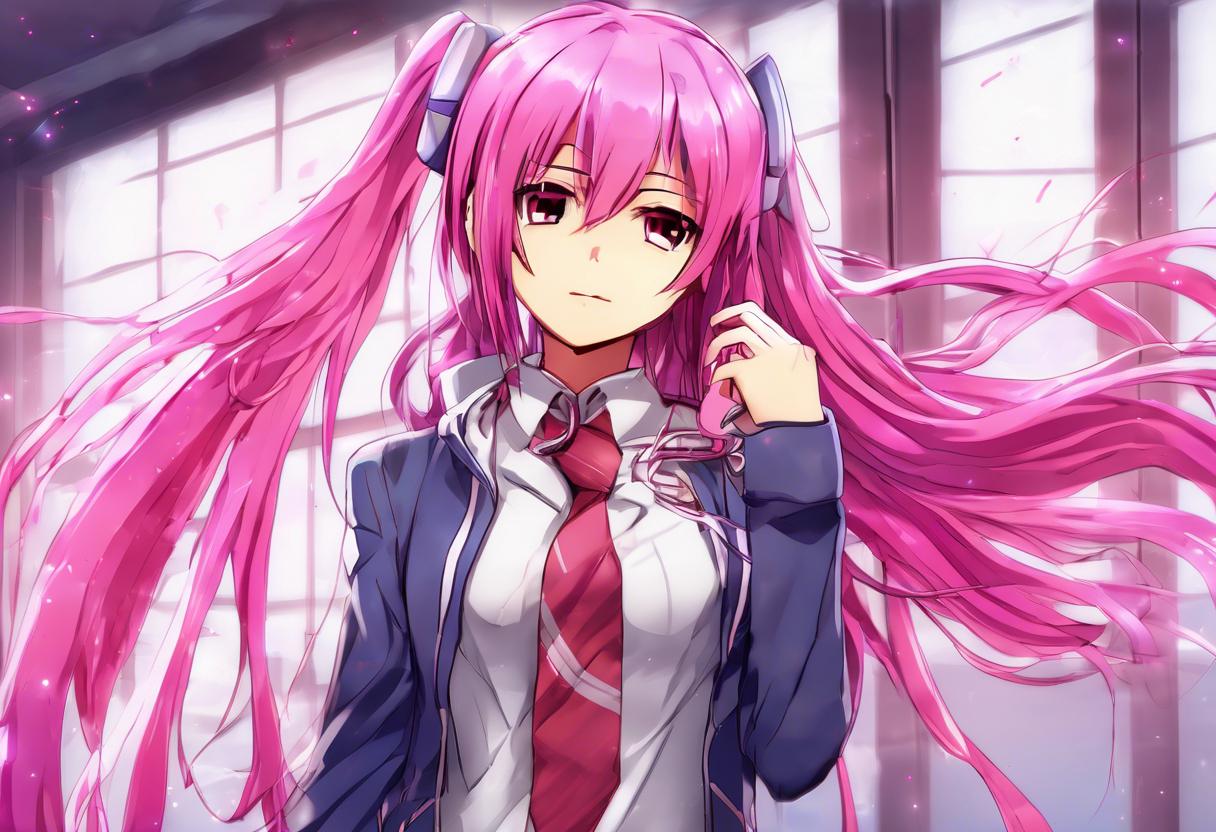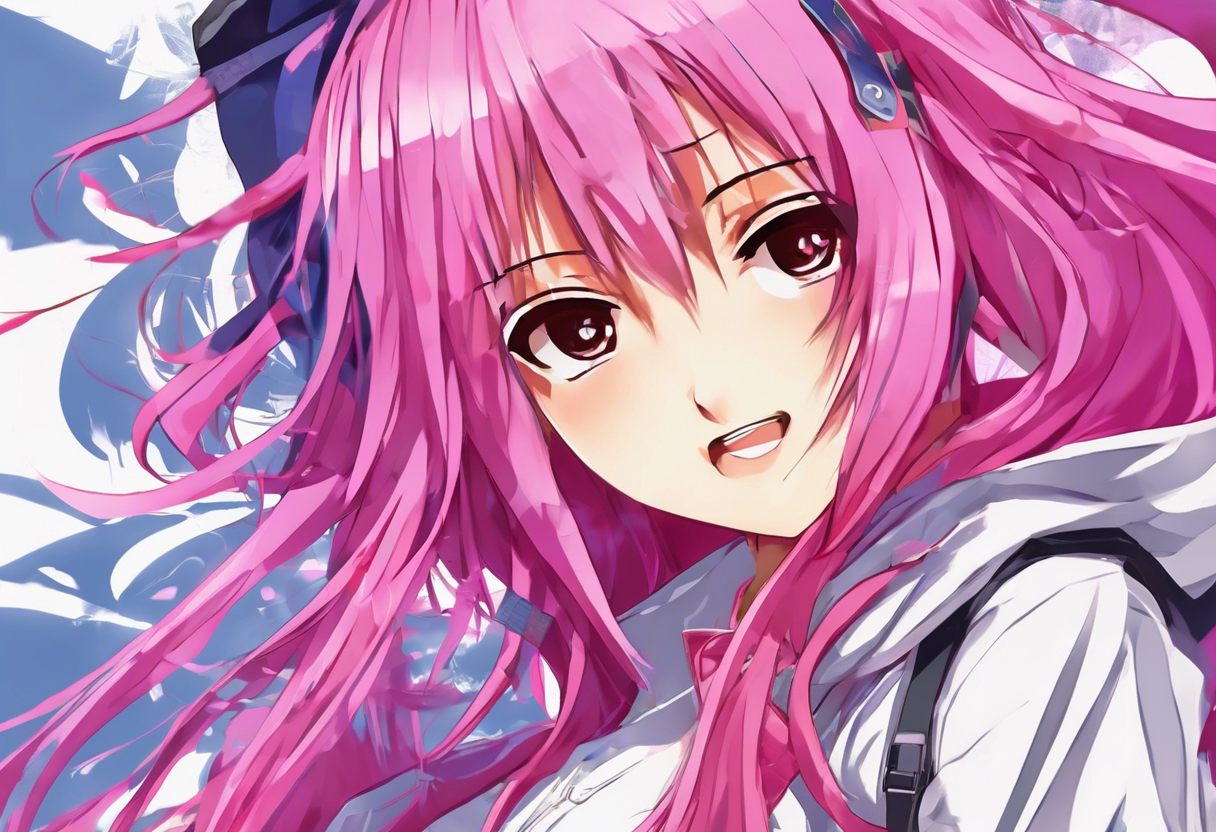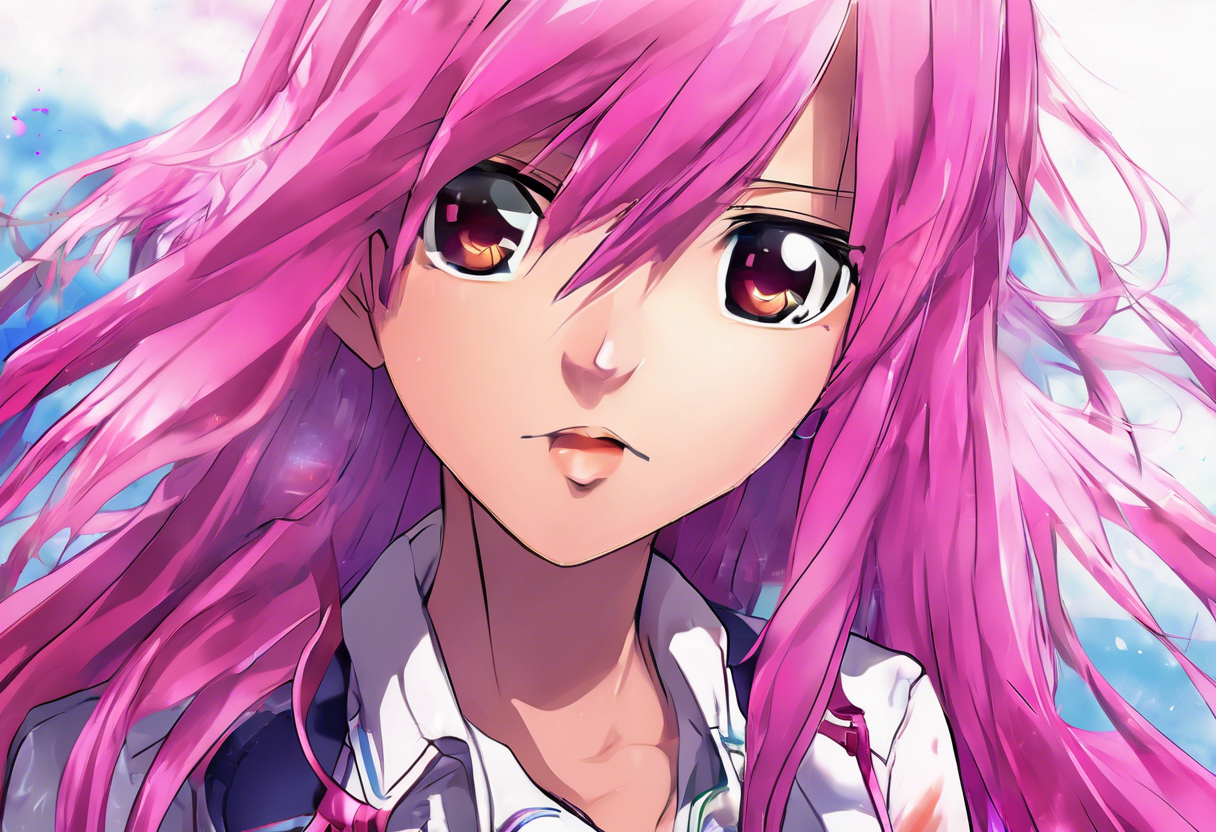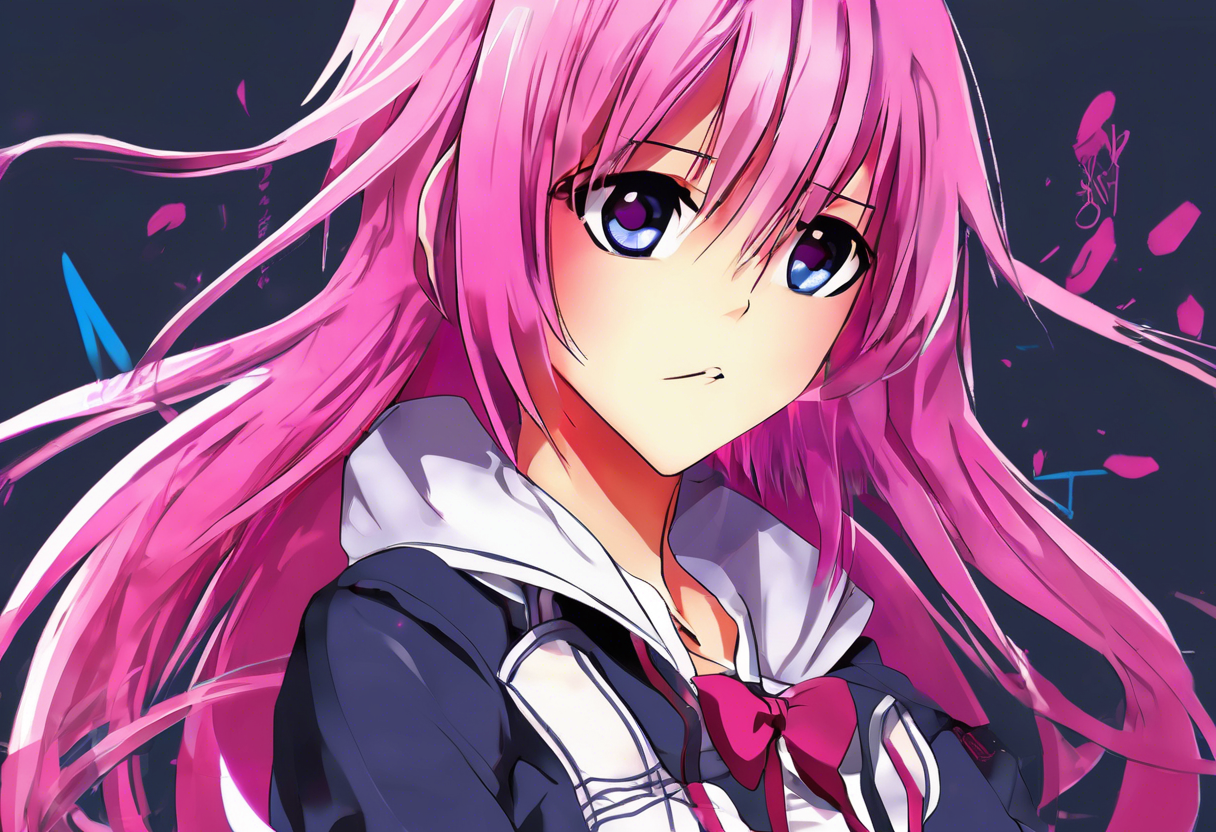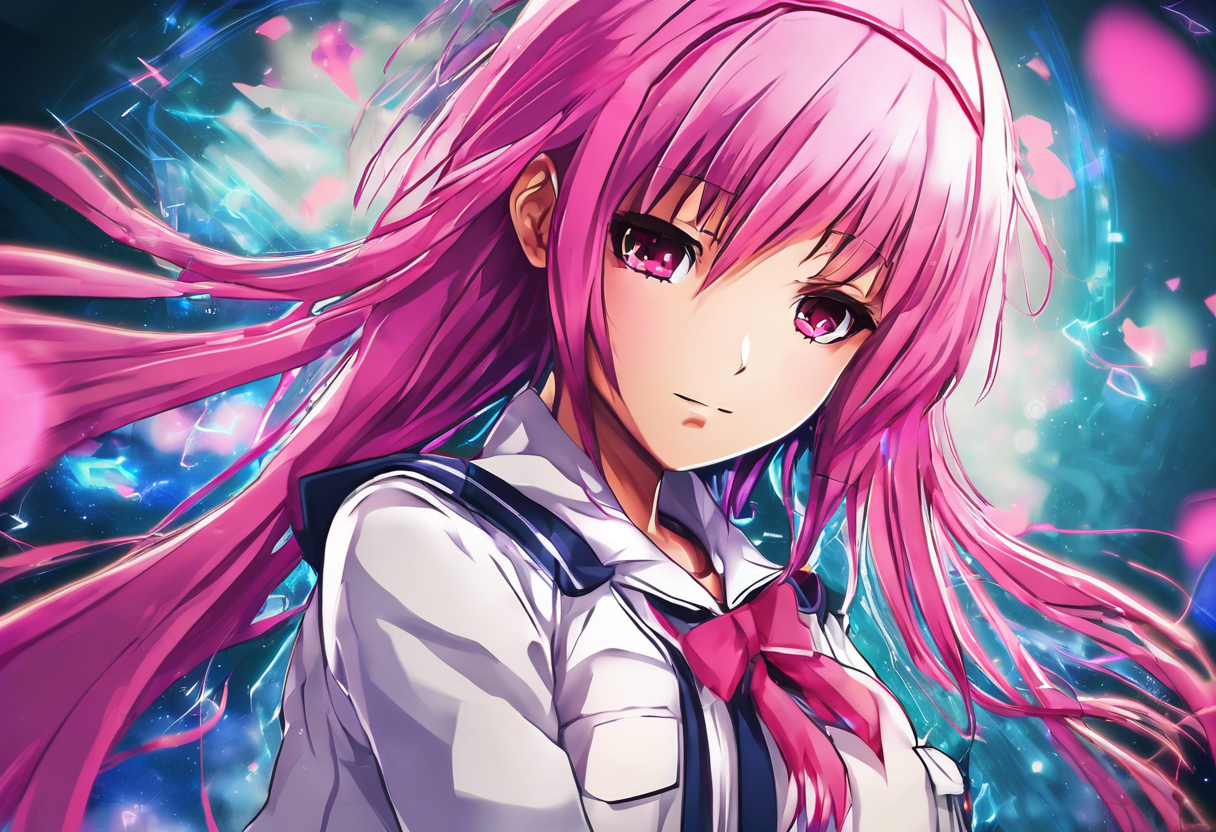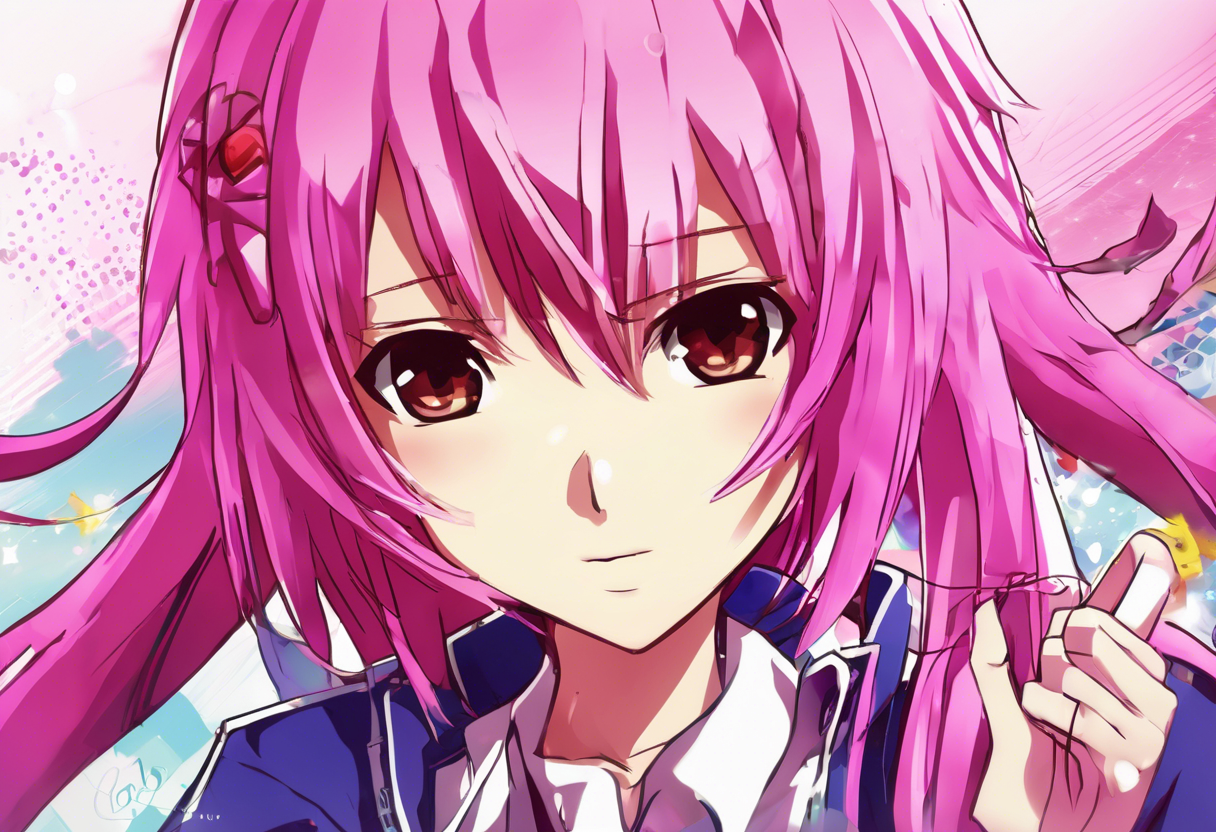Yui: The Energetic Musician with a Big Personality
Introduction
Yui is a central character from the 2010 anime Angel Beats!, created by Jun Maeda and produced by P.A. Works, serving as both a vibrant presence and a narrative catalyst within the story’s afterlife setting. Initially introduced as a seemingly minor background figure, Yui quickly grows in narrative significance when she becomes the lead vocalist and rhythm guitarist for the band Girls Dead Monster, succeeding the previous singer, Iwasawa. Characterized by her hyperactive, loud, and upbeat personality, Yui stands in stark contrast to her predecessor’s cool and reserved demeanor, a contrast that initially alienates her from other characters and viewers but later endears her through her genuine warmth and comedic energy. Her hallmark traits include wearing devil tail and shackle bracelets, carrying a Gibson SG Special electric guitar, and possessing hidden angelic wings obscured by her hair, symbolizing her complex nature. Within Angel Beats!, Yui’s role extends beyond musical performance—she integrates into the main afterlife resistance group, the SSS, contributing to both their missions and emotional dynamics while embodying themes of acceptance, renewal, and fulfillment. Her character draws on familiar archetypes of the spirited “wild child” but is layered with poignant backstory and emotional depth that enrich her narrative function and thematic resonance within the anime’s exploration of life, regret, and the afterlife.[1][2][3]
Yui’s story arc in Angel Beats! is marked by significant evolution, beginning as a fan and assistant of Girls Dead Monster before stepping into a leadership role as the band’s vocalist following Iwasawa’s departure. Her journey involves more than musical duties; Yui gradually becomes a vital member of the Afterlife Battlefront, blending spirited comic relief with moments of genuine emotional weight. A notable aspect of her arc is her strong yet complicated relationship with Hinata, another key character; despite frequent bickering and apparent annoyance, they share a deep mutual care, highlighted by Hinata’s heartfelt proposal to Yui, which symbolizes her last unfulfilled wish. Yui’s backstory reveals that in life she was paralyzed after being hit by a car at a young age, a tragedy that confined her physically yet did not diminish her vibrant spirit. Her journey in the afterlife is one of fulfilling forgotten desires and experiencing the freedom and agency denied in her previous existence. Key plot moments include her stepping up as a band leader, enduring the initial skepticism of her peers, and gradually winning their respect and affection, which mirrors the larger themes of acceptance and self-realization pervasive in Angel Beats![1][2][3]
Personality-wise, Yui is a whirlwind of energy, often speaking rapidly and exhibiting an almost chaotic enthusiasm that initially serves as comic relief but later reveals a multi-layered individual driven by deep-seated hopes and vulnerabilities. Her motivations are rooted in a desire to break free from the limitations imposed by her paralysis and to live fully, even in the afterlife. This impulsiveness and openness make her relatable and endearing, though it also leads to misunderstandings and friction, particularly with Hinata, whose more measured demeanor contrasts with Yui’s exuberance. Yui’s strengths lie in her resilience and ability to inspire others through music and positivity, while her weaknesses manifest in a sometimes naive stubbornness and a struggle to be taken seriously, both by others and herself. Through the narrative, Yui grows by reconciling her wild nature with a profound capacity for genuine connection and emotional depth, enriching her character and broadening her appeal to audiences as a dynamic, hopeful figure.[1][2]
Yui embodies several thematic and symbolic layers within Angel Beats! that resonate with the anime’s larger philosophical reflections on life, death, and the search for meaning. Her devil tail and shackles metaphorically represent the constraints and suffering she endured in life, especially her physical paralysis and emotional isolation. Meanwhile, her hidden wings symbolize latent freedom and the possibility of transcendence, aligning with the show’s motifs of spiritual liberation and redemption. Music, as a recurring motif connected to Yui, becomes her language of expression and a vehicle for personal and communal healing. Her narrative arc reinforces the themes of fulfillment and the importance of grasping life’s fleeting joys despite past regrets. Through Yui, Angel Beats! explores the idea that even the most seemingly broken individuals possess an inner light capable of transforming their reality and inspiring others, thus contributing a vital emotional and philosophical dimension to the anime’s story.[1][2][3]
Culturally, Yui has resonated strongly with the Angel Beats! fan community, becoming a beloved figure thanks to her infectious energy and emotional complexity. Initially challenging for viewers to embrace due to her loud and impulsive nature, Yui’s character development and touching backstory have earned her a significant following. She has appeared prominently in related media, including the anime’s soundtrack and merchandise, with her Gibson SG Special guitar and distinct devil-tail costume frequently featured in fan art and collectibles. Her voice actor, Eri Kitamura, and singer LiSA also contribute to her cultural footprint, with LiSA’s performances of Girls Dead Monster songs gaining popularity outside the anime community. Yui’s influence extends into inspiring similar character archetypes in other anime and media—energetic, rebellious female leads who balance comedic bravado with heartfelt vulnerability—cementing her legacy in the genre. Throughout fan conventions and online forums, Yui remains a symbol of spirited resilience and the transformative power of music and friendship.[1][2][3]
Critical reception of Yui has evolved alongside the show’s fandom. Early critiques noted that her introduction as Iwasawa’s replacement set her up for unfavorable comparisons, with some viewers finding her hyperactivity grating and her initial role lacking nuance. However, as Angel Beats! progressed, critics and audiences acknowledged the depth added to Yui’s character, praising her arc for its emotional resonance and contribution to the series’ tonal balance. Commentators have commended her as a compelling foil to the more subdued characters, providing levity without sacrificing narrative significance. Some criticism remains regarding the limited screen time she receives compared to other main characters, which may leave certain nuances underexplored, yet overall, Yui is regarded as one of the anime’s most memorable and impactful figures. Differing interpretations highlight her as both a symbol of youthful exuberance and a poignant reminder of life’s unfulfilled dreams, underscoring her multifaceted significance in Angel Beats![1][2][3]
Yui’s legacy within the Angel Beats! franchise and the broader anime genre is marked by her enduring influence on how energetic, complex female characters are portrayed. She helped expand the archetype of the “spirited wild child” by infusing it with layers of vulnerability and emotional maturity that challenge stereotypes. Yui’s narrative illustrates the potential for characters initially perceived as comic relief to evolve into emotionally central figures with lasting impact. Her presence enhanced Angel Beats!’ discourse on life after death, regret, and human connection, and her ongoing popularity attests to the character’s success in resonating across diverse audiences. Yui’s role in shaping discussions about character development in anime highlights the importance of balancing humor and pathos, as well as the creative ways music can be intertwined with storytelling. This legacy continues to inform contemporary character design and narrative approaches in the genre.[1][2][3]

